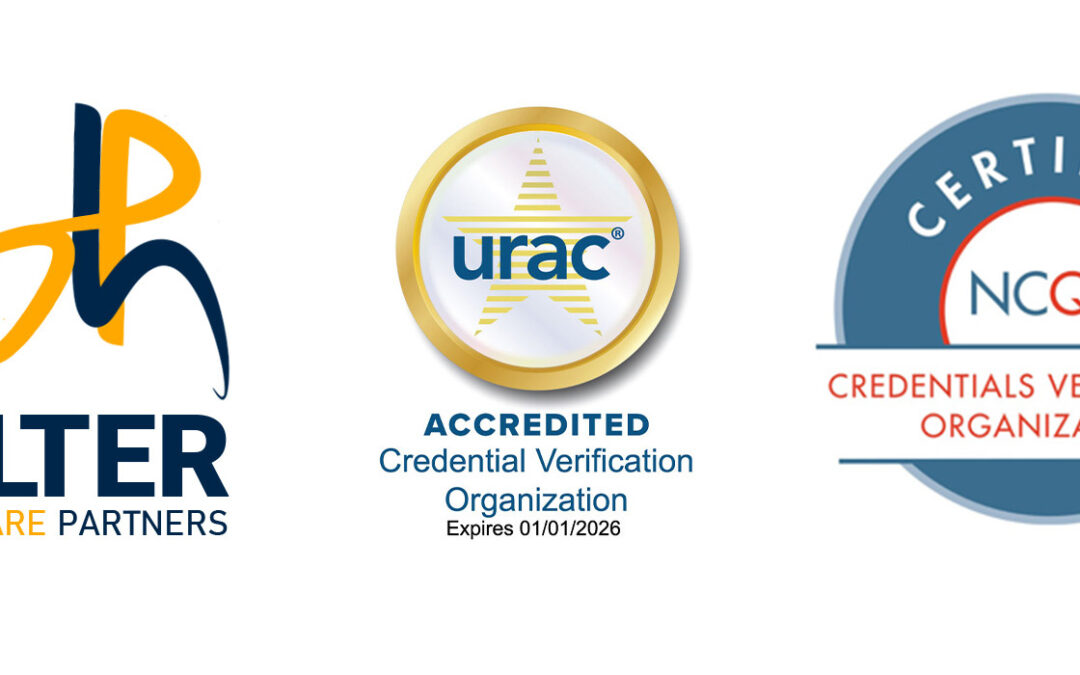
May 27, 2024 | Uncategorized
The American Medical Association (AMA) recently sent a letter to congressional leaders advocating for updates to the Medicare Physician Payment System. Following a Medicare Payment Advisory Commission (MedPAC) report, the AMA has urged Congress to implement a stable annual payment rate that aligns with inflation and practice costs.
The MedPAC report, presented to Congress on March 15, 2022, recommended maintaining the freeze on Medicare physician payment rates and not increasing them for 2023. The AMA has expressed significant concerns about this recommendation, emphasizing that it would negatively impact patient access to care as practice costs rise.
MedPAC’s report stated that despite the decline in Medicare service volume and revenue due to the pandemic, Congress provided substantial relief funds to clinicians. MedPAC expects these volumes and revenues to rebound to pre-pandemic levels by 2023. However, the AMA argues that financial challenges persist for physicians. They cite ongoing fiscal uncertainties related to the COVID-19 pandemic, statutory payment cuts, the consistent lack of inflationary updates, and significant administrative barriers as major issues affecting the stability of the Medicare physician payment system.
Inconsistency In Recommendation
The AMA also highlighted the inconsistency in MedPAC’s recommendation to freeze physician payment rates while CMS projects an 80 percent increase for Medicare Advantage plans in 2023. Data from the Medicare Trustees show that Medicare physician pay has increased by only 11 percent from 2001 to 2021, with one-third of that increase coming from a temporary 3.75 percent update set to expire this year. In contrast, Medicare hospital and skilled nursing facility payment rates have increased by over 60 percent during the same period. When adjusted for inflation, Medicare physician payment rates have declined by 20 percent over the past two decades, while the costs of running a medical practice have risen by 39 percent since 2001.
Additionally, Medicare physician fee schedule spending per enrollee has declined by 1 percent over the last ten years, while other Medicare benefits spending has significantly increased. For instance, Part B fee-for-service spending per enrollee, excluding physician fee schedule spending, rose by 42 percent over the last decade. Part A fee-for-service spending increased by 3.6 percent, Part C spending by 29.4 percent, and Part D spending by 20 percent.
Free Set To Continue Until 2026
The Medicare physician payment freeze is set to continue until 2026, after which payment updates will resume at a rate of 0.25 percent per year, far below the rate of medical or consumer price index inflation. The AMA warns that unless Congress updates Medicare physician payments to reflect inflation, the gap between payment rates and rising practice costs will continue to widen.
The AMA also referenced a May 2021 study that revealed the high costs of compliance with the Medicare Merit-Based Incentive Payment System (MIPS), amounting to around $12,800 and over 200 hours per physician annually. Furthermore, physicians have not been able to receive annual incentive payments for Medicare Advanced Alternative Payment Models (AAPM) due to the lack of transition opportunities.
The AMA stressed that financial hardships, burnout, and stress are driving many physicians to consider leaving their practice within two years. While expressing gratitude to Congress for the financial relief provided during the pandemic and for preventing a 10 percent physician payment cut in 2022, the AMA urged officials to collaborate with the physician community to develop solutions to the systemic issues plaguing the Medicare physician payment system.
Original article published on revcycleintelligence.com

May 25, 2024 | Uncategorized
Colorado Opioid Epidemic
A spotlight analysis by the American Medical Association (AMA), Colorado Medical Society (CMS), and Manatt Health reveals significant progress in Colorado’s efforts to address the opioid epidemic. The report highlights reforms that have been implemented, while also recommending further steps for policymakers, insurers, and physicians to save more lives.
Analysis Information
The analysis found that Colorado has made notable strides in increasing access to evidence-based treatment for substance use disorders. Several pilot projects have improved care for patients with pain, and increased access to naloxone, the opioid overdose-reversing drug, has saved thousands of lives. “We conducted this analysis because it’s essential that policymakers know what is working and where additional progress can be made,” said AMA President-elect Dr. Patrice A. Harris, who also chairs the AMA Opioid Task Force. “Colorado has implemented many important policies that are impacting patients’ access to care. Using this momentum, we think Colorado can go even further to save lives of those affected by opioid use disorder.”
This Colorado study is the second in a series of individual state analyses by the AMA, following a recent study on Pennsylvania. Based on data, policy reviews, and discussions with key policymakers, the analysis identified four key areas of success in Colorado.
4 Key Areas Of Success
- Adoption of Policies and Funding to Increase Access to Medication-Assisted Treatment: Initial steps have been taken to reduce administrative barriers, increase funding to address workforce issues, and expand Medicaid coverage in residential settings.
- Compliance with Mental Health and Substance Use Disorder Parity Laws: The Colorado Division of Insurance is reviewing insurers’ conduct and has established an ombudsman’s office to help patients access behavioral health care.
- Increasing Access to Non-Opioid Pain Management for Medicaid Patients: Coverage has been extended to non-opioid prescription medications and alternative therapies, such as physical and occupational therapy, and additional behavioral health care options.
- Expanding Access to Naloxone: Early legislation, a standing order for naloxone, Good Samaritan protections, and the elimination of prior authorization for naloxone under Medicaid have been implemented.
“This analysis comes at an important time for Colorado,” said Dr. Debra Parsons, CMS President. “Over the last six years, Colorado has developed policies, enacted laws, and made significant strides in uniting stakeholders to reverse the opioid epidemic. While we continue these successful initiatives, we must closely evaluate their effectiveness to ensure we are directing our efforts appropriately.”
The analysis also highlighted the work of the Colorado Consortium for Prescription Drug Abuse Prevention, which has united hundreds of stakeholders and continues to develop a data-driven dashboard to help direct resources to areas of greatest need. Additionally, the report identified areas for further improvement:
- Eliminating Barriers to Treatment: Further steps are needed to enforce mental health and substance use disorder parity.
- Expanding Access to Medication-Assisted Treatment Providers: Especially in rural areas of the state.
- Leveraging Successful State Pilots: To increase access to multimodal pain care and comprehensive benefit and formulary designs.
- Linking Naloxone Recipients to Follow-Up Treatment: To begin and sustain recovery.
- Evaluating State Policies and Programs: To determine what is improving patient care and reducing opioid-related harms, and to identify any unintended consequences of current policies.
“Many recommendations in this report, especially those related to commercial insurance—such as improving enforcement of mental health parity and conducting more comprehensive reviews of addiction professionals in insurers’ networks—are fair and reasonable steps we can tackle immediately,” said Michael Conway, Colorado Insurance Commissioner and head of the state’s Division of Insurance. “We look forward to working with Colorado’s health insurers and physicians to implement solutions that ensure consumers receive the care they need to help end our state’s opioid epidemic.”
Click here to read the original article on cms.org.

May 23, 2024 | Uncategorized
Are you worried about surprise medical bills? The recently passed No Surprises Act aims to protect consumers, but many people are still unsure about its implications. Fortunately, several organizations have added resources to help you understand the new legislation. Read on to learn more.
Advisories, information sheets, and FAQs are now available to assist hospitals, health systems, physicians, and consumers in navigating the new rules against surprise billing. Despite ongoing legal challenges, key elements of the No Surprises Act took effect on January 1, and various stakeholder organizations are offering guidance to their members.
Latest Updates:
American Hospital Association (AHA):
- On Friday, the AHA published a legislative advisory summarizing the No Surprises Act and its key takeaways. The advisory includes a 15-page detailed summary of the rules. “The hospital and health system field strongly supports protecting patients from surprise medical bills,” the AHA stated. They believe this legislation is a significant step forward in patient protection. The AHA’s advisory webpage also links to additional resources, including an FAQ on good faith estimates for uninsured/self-pay patients, details about the AHA/AMA lawsuit challenging billing dispute resolutions, and information on CMS guidance
American Medical Association (AMA):
- Also on Friday, the AMA published an advocacy update for physicians. It includes a new toolkit focusing on three key issues: notice-and-consent requirements for out-of-network care at in-network facilities, rules about emergency and post-stabilization care, and good faith estimates for self-pay and uninsured patients. An AMA Advocacy Insights webinar on January 20 will explore these topics further.
Centers for Medicare & Medicaid Services (CMS):
- CMS added new online resources for consumers explaining their new billing protections effective January 1. These include protections for emergency care, non-emergency care from out-of-network providers at in-network facilities, and air ambulance services from out-of-network providers. The CMS website states, “Through new rules aimed at protecting consumers, excessive out-of-pocket costs are restricted, and emergency services must continue to be covered without prior authorization, regardless of network status.” The page also provides links to resources that explain what surprise bills are and the new consumer protections.
Additional resources for hospitals and health systems are available from the Healthcare Financial Management Association and the Medical Group Management Association.
For more details, visit the original article on healthleadersmedia.com.

May 9, 2024 | Uncategorized
Arvada, CO April 2024 — RT Welter and Associates, Inc. DBA Welter Healthcare Partners (WHP), a leading provider of comprehensive healthcare business management solutions, proudly announces its achievement of National Committee for Quality Assurance (NCQA) Credentials Verification Organization (CVO) Certification. This recognition underscores WHP’s commitment to delivering unparalleled quality, security and excellence in credentials verification for over 30 years.
Achieving this honor places Welter Healthcare Partners in an elite group of six companies that have achieved the coveted URAC Accreditation and NCQA Certification for Credentials Verification Organization (CVO).
NCQA is a private, nonprofit organization dedicated to improving healthcare quality. NCQA accredits and certifies a wide range of healthcare organizations. It also recognizes clinicians and practices in key areas of performance. NCQA’s Healthcare Effectiveness Data and Information Set (HEDIS®) is the most widely used performance measurement tool in health care. In recognition for its leadership in diversity, equity and inclusion, NCQA has won the Excellence in Diversity Award from the Chesapeake Human Resources Association. NCQA’s website (ncqa.org) contains information to help consumers, employers and others make more-informed healthcare choices. NCQA can be found online at ncqa.org, on Twitter @ncqa, and on LinkedIn at linkedin.com/company/ncqa.
CVO Certification includes rigorous on-site evaluations conducted by a team of healthcare professionals and certified credentialing specialists. A national oversight committee of physicians analyzes the team’s findings and determines certification based on the CVO’s compliance with NCQA standards.
“Our team at Welter Healthcare Partners is immensely proud to achieve NCQA CVO Certification,” said Todd Welter, Chairman and CEO at WHP. “This recognition reflects our ongoing commitment to delivering exceptional CVO value and expertise to our clients. We are grateful for the validation of our dedication to quality, compliance, security, and accurate credentials verification and look forward to continuing to serve our clients with excellence.”
The NCQA CVO Certification reinforces WHP’s ability to provide managed healthcare services with excellence, benefiting both the organization and its members and clients. WHP’s expertise and dedication are translated into tangible benefits for its clients, enabling them to navigate the complexities of network management and expansion successfully. With NCQA CVO Certification, and URAC CVO Accreditation, WHP reaffirms its position as a trusted partner in the healthcare industry.
For more information about Welter Healthcare Partners and its comprehensive healthcare management solutions, visit welterhp.com or contact Jennifer Heuer at jh@welterhp.com or 303-534-0388.
About Welter Healthcare Partners:
Welter Healthcare Partners (WHP) is a leading provider of comprehensive healthcare business management solutions, and credentials verification; empowering physician practices, healthcare providers, payers, hospitals, and organizations of all types to thrive in the dynamic healthcare landscape so they can focus on providing the highest quality healthcare to their patients. With over 30 years of experience, WHP delivers unparalleled expertise and support to its clients, ensuring their success, sustainability, compliance and profitability.
Media Contact:
Jennifer Heuer
Welter Healthcare Partners
Email: jh@welterhp.com
Phone: 303-534-0388

Apr 11, 2024 | Uncategorized
The American Medical Association (AMA) has rolled out a comprehensive plan, named the “AMA Recovery Plan for America’s Physicians,” aiming to address the challenges confronting physicians, particularly exacerbated by the COVID-19 pandemic. This initiative comes in response to the critical issue of provider burnout, which has reached crisis levels. The plan’s key elements include:
- Supporting Telehealth Services: Recognizing the importance of telehealth, especially highlighted during the pandemic, the plan advocates for continued support and insurance coverage for telehealth services. This expansion acknowledges its benefits in terms of accessibility, convenience, and time-saving for both providers and patients.
- Reforming Medicare Payment for Physician Services: The plan underscores the longstanding issue of inadequate Medicare reimbursement for provider services. It calls for reforms to ensure stable and adequate payment, eliminating the annual uncertainties that impede physician practices’ financial stability.
- Addressing “Scope Creep”: The plan aims to curtail the expansion of non-physicians’ scope of practice. For example, nurse practitioners, and maintaining the integrity and quality of healthcare delivery.
- Streamlining Prior Authorization Processes: Recognizing the administrative burden placed on provider practices by prior authorization requirements, the plan advocates for reforms to reduce this burden and avoid delays in patient care.
- Tackling Physician Burnout and Mental Health Stigma: The plan acknowledges the pressing need to address physician burnout and reduce the stigma surrounding mental health issues in the medical profession. It emphasizes the importance of supporting provider’s well-being to ensure the sustainability of the healthcare workforce.
Overall, the AMA Recovery Plan aims to mitigate the challenges faced by physicians. It also safeguards the future of healthcare delivery in the United States. Through these strategic interventions, the AMA seeks to alleviate physician burnout, ensure fair reimbursement, and promote a supportive environment for healthcare professionals.

Apr 4, 2024 | Uncategorized
The American Academy of Dermatology has crafted a comprehensive guide to selecting and applying sunscreen effectively. With the onset of summer marked by Memorial Day and the resurgence of outdoor activities post-COVID-19 restrictions, it’s crucial to prioritize sunscreen application. Don’t forget to slather on that sunscreen as you indulge in your favorite outdoor pursuits—it’s summertime at last! Sunscreen plays a vital role in shielding your skin from skin cancer and premature aging, but its efficacy hinges on correct application. Here are some expert tips from dermatologists:
- Opt for sunscreen with an SPF of 30 or higher, water resistance, and broad-spectrum coverage to shield against both UVA and UVB rays.
- Apply before stepping outdoors to allow around 15 minutes for absorption and protection. Applying it after sun exposure leaves your skin vulnerable to burns.
- Ensure you use enough sunscreen, approximately 1 ounce to cover your entire body adequately—massage it thoroughly into your skin.
- Cover all exposed skin areas, including your neck, face, ears, tops of feet, and legs. For challenging-to-reach spots like your back, enlist assistance or opt for spray sunscreen. Protect your lips with an SPF-containing lip balm.
- Reapply sunscreen every two hours or immediately after swimming or sweating to maintain protection. Sunburn often occurs due to insufficient usage, failure to reapply, or using expired products.
Remember, UV rays penetrate your skin even on overcast days and during winter, so make sunscreen a year-round habit. Whether you’re vacationing or enjoying a stroll in your neighborhood, prioritize sun protection. For more tips on preventing skin cancer, consult a board-certified dermatologist.
Page 3 of 125«12345...102030...»Last »






